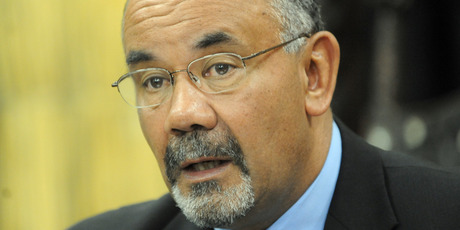By Madeline Schiesser
Impunity Watch Reporter, Europe
PARIS, France — French president François Hollande’s Socialist government has announced its plan to make good on a key issue of his electoral platform from May: gay marriage and adoption. The French Parliament presented Hollande’s cabinet with draft legislation of the bill it plans to review in January to legalize gay marriage and adoption, despite strong opposition from the political right, and from the Catholic, Protestant, Jewish and Islamic faiths.

The draft legislation would probably pass both houses of France’s Parliament fairly easily. If measures legalizing gay marriage were passed, France would be the 12th country to legalize gay marriage, in the company of other countries including Canada, South Africa, Spain and Portugal; with a population of 60 million, it would also be the largest.
Currently civil unions are allowed between gay couples. However, such lack several advantages of marriage, including the ability take their partner’s name, gain inheritance and pension rights, and to adopt.
The proposed legislation would also expressly allow gay couples to adopt. In France, a requirement of adoption is being a married couple, which hereto now has not been an option for members of the gay community.
Legislation appears to be the only measure to overturn France’s gay marriage ban. Two years ago France’s highest judicial authority, the Constitutional Council, refused to strike down the ban residing in the Civil Code, ruling that the ban was constitutional, but that the legislator could change the law if desired.
Hollande and the legislator’s plans have seen fierce opposition from the political Right and church, throughout the French country.
Over 1000 mayors and deputy-mayors of communities have signed a petition against the bill and in at least 75 towns and cities there have been protests, with some calls for mass protests.
Jean-Francois Cope, a member of the conservative UMP party leadership, wants to draft bill delayed citing that it was “incredibly badly prepared.” He claims that the measures go far beyond gay marriage: “[I]t is about a complete reorganization, deconstruction of the right of the family, with questions surrounding lineage, the removal of the reference to father and mother in the text.”
Former Prime Minister, François Fillon, has also promised his party will repeal the law and un-marry any gay couples married under it.
The Roman Catholic Church has also expressed its concern over the draft legislation. Pope Benedict XVI has called on French bishops to oppose the legislation and defend marriage as the “foundation of social life.”
A leader of the opposition, Paris Cardinal Andre Vingt-Trois, expressed his concern that children needed both a father and a mother to build their identities. He said “When we defend the right of children to build their personality with reference to the man and the woman who gave them life, we are not defending a particular position” and urged the government to consider “the accumulated wisdom of our civilization that marked its gradual exit from barbarism.”
However, Minister of Family Affairs Dominique Bertinnoti argued that “This is an important step towards the equality of rights,” and asserted that the bill will not destroy families, because “on the contrary it is a legal protection.”
The writers of the draft bill intend to only amend the Civil Code “where strictly necessary,” however, they also plan to use gender neutral language throughout al amended sections: “patent” instead of “mother” or “father” and “spouse” instead of “husband“ or “wife.” However, these terms will not be changes globally through the Civil Code.
Even those largely in favor of the law have identified some short comings. For example, the draft legislation does not provide the right to medically assisted conception for gay couples (e.g. in vitro fertilization for lesbians). Nor will it allow a single gay person the right to adopt. Prime Minister Jean-Marc Ayrault has suggested amendments can be added later.
President Hollande expressed his approval of the draft legislation, saying that “[t]his would be progress not just for the few, but for our whole society.” He further emphasized that the proposed legislation “resolutely takes into account the greater interest of the child.”
Hollande wants to see the new bill on the statute books by mid-2013.
Support for gay marriage is growing in France. French newspaper Le Monde’s most recent Ifop poll showed 65% support for gay marriage, although only 52% of respondents favored gay couples adopting.
For further information, please see:
France 24 – French Government Backs Draft Gay Marriage Law – 8 November 2012
BBC News – French Gay Marriage and Adoption Bill Backed by Cabinet – 7 November 2012
France 24 – France Adopts Gay Marriage Plan Despite Opposition – 7 November 2012
The Guardian – French Government Approves Introduction of Same-Sex Marriage – 7 November 2012
The Independent – French President Francois Hollande Keeps His Vow to Legalise Gay Marriage – 7 November 2012
The Telegraph – French Gay Marriage Plans ‘A Sham That Will Smash Foundations of Society’ – 6 November 2012
The International Herald Tribune – France: Gay Marriage Ban Upheld – 28 January 2011
France 24 – France Reviews Gay Marriage Ban – 16 November 2010



